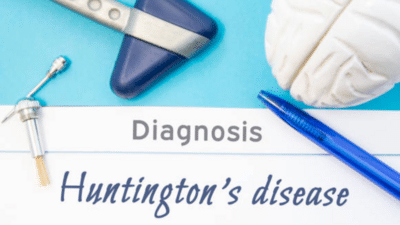
Huntington’s disease (HD) is a progressive, inherited neurological disorder that affects movement, cognition, and behavior. Managing the condition effectively requires a combination of medical treatment, lifestyle modifications, and emotional support. While there is currently no cure, early diagnosis and proper management can significantly improve quality of life for those affected and their caregivers.
Understanding Huntington’s Disease
Huntington’s disease is caused by a genetic mutation in the HTT gene, which leads to the gradual degeneration of nerve cells in the brain, particularly in areas responsible for movement, thinking, and emotions. Symptoms typically appear between the ages of 30 and 50, though juvenile and late-onset forms exist. The condition progresses over time, leading to significant physical and mental challenges.
Key symptoms of Huntington’s Disease
Symptoms of HD vary from person to person but generally include:
Movement disorders: Involuntary jerking or writhing movements (chorea), muscle rigidity, slow movements, difficulty with balance and coordination.
Cognitive impairment: Difficulty concentrating, memory loss, poor judgment, and trouble planning tasks.
Behavioral and psychiatric issues: Depression, mood swings, irritability, anxiety, and, in some cases, obsessive-compulsive behaviors.
Effective Management Strategies
While there is no cure for Huntington’s disease, the following management strategies can help improve daily life:
1. Medical treatments
Doctors may prescribe medications to help manage specific symptoms:
Movement symptoms: Drugs such as tetrabenazine and deutetrabenazine can reduce involuntary movements.
Psychiatric symptoms: Antidepressants, mood stabilizers, and antipsychotic medications may help manage emotional and behavioral changes.
Cognitive support: While there is no direct treatment for cognitive decline, certain medications may help with related symptoms.
2. Physical and occupational therapy
Physical therapy: Helps maintain mobility, balance, and muscle strength, reducing the risk of falls.
Occupational therapy: Assists with daily tasks by adapting routines and environments for easier living.
3. Speech and swallowing therapy
As HD progresses, speech and swallowing difficulties become common. Speech therapists can provide exercises and techniques to improve communication and prevent choking risks.
4. Nutritional support
Maintaining a healthy diet is crucial, as people with HD often experience weight loss due to increased energy expenditure. Soft, high-calorie foods and supplements can help maintain adequate nutrition.
5. Mental and emotional well-being
Counseling and therapy: Support from mental health professionals can help individuals cope with depression, anxiety, and emotional changes.
Support groups: Connecting with others facing similar challenges can provide emotional support and practical advice.
6. Caregiver support
Caring for someone with Huntington’s disease can be challenging. Caregivers should seek support through respite care, counseling, and education about the disease to manage stress effectively.
Looking ahead
Though Huntington’s disease is a progressive condition, early management strategies can make a significant difference in quality of life. Ongoing research is focused on finding better treatments and, potentially, a cure. In the meantime, a combination of medical care, therapy, and emotional support can help individuals and families navigate the challenges of the disease.
By staying informed and proactive, those affected by Huntington’s disease can live as fully and comfortably as possible.
Dr Shivananda Pai, Consultant Neurology, KMC Hospital Dr B R Ambedkar Circle Mangalore
